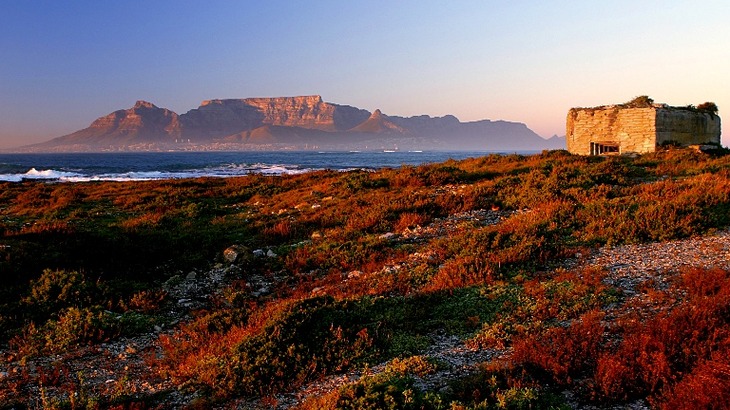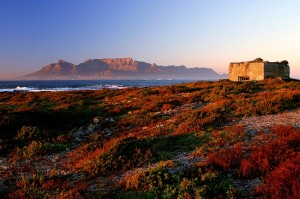
Sentenced to Prison
Arrested in 1962, convicted of sabotage and other charges, Mandela was sentenced to a hopeless life in prison, many of those on Robben Island, South Africa. And yet, he later declared in his memoir, Long Walk to Freedom,, “I never seriously considered the possibility that I would not emerge from prison one day. I never thought that a life sentence truly meant life and that I would die behind bars. Perhaps I was denying this prospect because it was too unpleasant to contemplate. But I always knew that someday I would once again feel the grass under my feet and walk in the sunshine a free man.” Nelson Rolihlahla Mandela refused to think of anything but freedom.

In prison he discovered the greatest challenge every prisoner faced was to survive with their spirit intact, to emerge undiminished. Surviving with your spirit intact required you to understand that prison is designed to break your spirit, rob your dignity and crush you completely. Your enemies will “exploit every weakness, demolish every initiative, negate all signs of individuality –all with the idea of stamping out that spark that makes each of us human and each of us who we are.”
Mandela determined with that understanding that he would survive and that he would not part with his dignity for any price or under any pressure. But before he would experience freedom again his resolve would be tested in unimaginably horrific ways. He performed hard labor in a lime quarry and was classified as a D-group prisoner. This lowest classification segregated him as a black prisoner and political prisoner, receiving the fewest rations and almost non-existent privileges: one visitor and one letter every six months, which when they came, were often delayed for long periods and made unreadable by the prison censors.
Solitary Confinement
As you can imagine, he found solitary confinement the most forbidding aspect of prison. With no concept of time his mind would play tricks on him and he could not discern between dreams and actual events. The questions that pervaded his every thought as a prisoner were whether his sacrifice was worth the pain and whether he had made the right decision to hold fast to his convictions. Solitary confinement afforded no reprieve only louder echoes of those haunting questions.
It is astounding to contemplate the suffering that the human body can endure. And Mandela found the secret that has been attested to by others through history: “one can bear the unbearable if one can keep one’s spirits strong even when one’s body is being tested. Strong convictions are the secret of surviving deprivation; your spirit can be full even when your stomach is empty.”
Robben Island
For 18 of Mandela’s 27 years, he was imprisoned on Robben Island, which became known in the South African struggle for freedom as The University. By studying books and teaching each other many prisoners obtained multiple degrees by correspondence. Eventually, The University was replete with faculty, professors, curriculum, and courses with official academic tracks and an underground political track. In prison, Mandela studied academics excessively, taught political studies courses to fellow inmates and found ways to practice law on behalf of other prisoners.
Mandela found that your spirit is always free if you guard your priceless dignity, and maintain a strong vision of a bright future. These choices coupled with his resolve enabled him to endure. Mandela once said, “I had read some of the classic Greek plays in prison and found them enormously elevating. What I took out of them was that character was a measured by facing up to difficult situations and that a hero was a man who would not break even under the most trying circumstances.”
“Prison was a kind of crucible that tested a man’s character. Some men, under the pressure of incarceration, showed true mettle, while others revealed themselves as less than what they appeared to be.” Prison was Mandela’s crucible; but prison was also his stage and it was behind those walls that his value and heroism was revealed to the world.
He was released from prison on 11 February 1990 after serving 27.5 years in prison. Mandela recorded that when he was released, “I felt –even at the age of seventy-one –that my life was beginning anew. My ten thousand days of imprisonment were over.” Following his release from prison Mandela led his political party in the negotiations that led to the establishment of democracy in 1994. Four years later he became the South Africa’s first President to ever to be elected in a fully representative democratic election (multi-racial election) and the country’s first black President. In addition to serving as president from 1994-1999, he also received more than 250 awards over four decades, including the 1993 Nobel Peace Prize.
How have you felt imprisoned in your life?
Recognize your value, not just as God’s creation, but as His masterpiece and don’t part with your dignity for any price or under any pressure.
Refuse to think of anything but freedom and soon your ten thousand days of imprisonment will be over.
Robben Island, South Africa – Photo credit: Paul Watson via photopin cc
